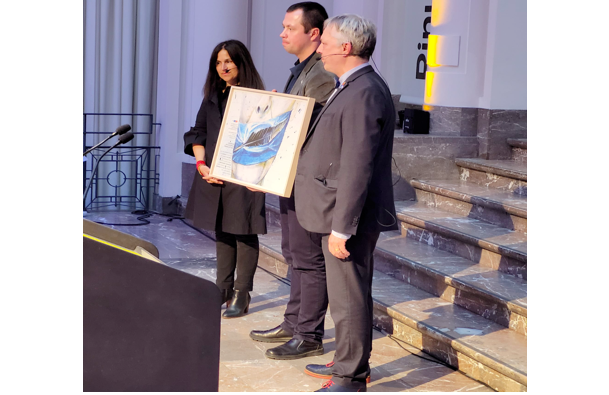Barys Haretski: “This award is another opportunity to remind the world of the situation of journalists in Belarus”

To mark World Press Freedom Day on May 3, the Belarusian Association of Journalists (BAJ) has been awarded the Difference Day Honorary Title for its vital work in Belarus in times of repression. BAJ was established in 1995 as a non-governmental association of media workers with the aim of promoting freedom of expression and independent journalism in Belarus. It brings together more than 1300 journalists and media workers. As part of the crackdown following Lukashenko’s fraudulent election, the Supreme Court ordered the dissolution of the association in August 2021, forcing it to cease its activities in the country and relocate offices abroad. Most Belarusian journalists are also in exile, working from Lithuania, Poland, Georgia, and Ukraine. We interviewed Barys Haretski, Deputy President of BAJ, in Brussels, minutes before receiving the award.

What does this award mean for Belarusian journalists and for BAJ?
This is a very high appreciation of our work and an opportunity to pay more attention to the situation in Belarus again. For the last two years, we have been working in an emergency situation. And unfortunately, until now, we do not see any progress. Our colleagues are still in prison. This award is one more opportunity to remind the world of this.
Today, BAJ also received the Guillermo Cano World Press Freedom Prize from UNESCO in Uruguay. What do you expect from this international visibility?
Our main hope is that Lukashenko will finally accept some change, such as the release of imprisoned journalists. Today, Belarus is in a difficult situation that it cannot resolve, due to sanctions and pressure from Russia. There is a small hope that the authorities will agree to free some of the imprisoned people. That is why we have to talk about the imprisoned people wherever we can.
Can you tell us about the situation of Belarusian journalists today?
Unfortunately, the situation is very difficult. Five editors are in prison. As the authorities have destroyed almost all independent newsrooms, most independent media work outside Belarus. It is important to understand that almost all independent media are blocked in Belarus, which means that people cannot access information easily. But despite this situation, independent media continue to inform their audience through Telegram, VPNs, proxy servers, etc. This is all the more important that the Belarusian population can still get independent information, as Russian propaganda is getting stronger.
How does the situation in Ukraine affect your work?
Before the war, there were more than 100 Belarusian journalists in Ukraine and I was there myself, it was a good country for us. But now there are probably only 15 colleagues left. For us it means a second exile, because when you are under bullets you can’t do quality journalism, you just have to hide. Some are still working there, some are volunteering. This is how I see the future: I hope that Ukraine will win the war, as it will lead to changes in the whole region. We are doing a lot for Ukraine, so that we can go back to Belarus.
What keeps you going on your mission?
We have more than 1300 members, every day someone needs our help. I can’t say ‘I won’t help you’. Everything we can do, we will continue to do with the help of our partners.











